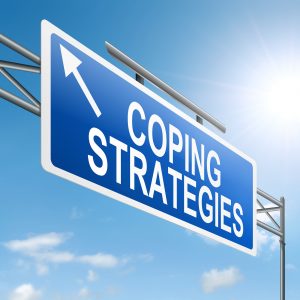 Every day we are faced with various challenges that life throws at us and we must learn how to cope. There are times we do this without even being aware of it and other times we must choose to actively engage in a coping tool to work through these challenges. Coping skills can range from simply going for a walk to relax, phoning a friend to discuss an issue at hand, or staying at home to watch a movie.
Every day we are faced with various challenges that life throws at us and we must learn how to cope. There are times we do this without even being aware of it and other times we must choose to actively engage in a coping tool to work through these challenges. Coping skills can range from simply going for a walk to relax, phoning a friend to discuss an issue at hand, or staying at home to watch a movie.
There are healthy ways we can choose to cope with something important and there are also unhealthy ways we choose to cope where we might avoid the real issue at hand or perpetuate destructive behavior. Below are some examples of healthy coping techniques to help you learn how to cope in a more positive way.
- Physical activity can be a healthy and natural form of stress relief. Running, swimming, yoga, dance, and any other type of physical activity can help cope with stress and PTSD.
- Problem-solving. This coping mechanism is done by identifying the problem that is causing stress and then creating an action plan for solutions that can potentially manage it.
- This is a great coping mechanism. Any number of relaxing activities can help cope with stress. Meditation is a popular one as well as listening to peaceful music, visualization or sitting in nature.
- A supportive person to speak with during a stressful event can also be an effective way to manage stress. Sometimes we tend to isolate ourselves and internalize things during stressful events. External support, such as therapy, can be incredibly effective.
- Finding the humorous side of a stressful situation can not only help cope with the event but can also put things into perspective.
People who tend to use negative coping techniques often see a negative impact on emotional well-being and mental health. It’s important to know how to cope positively, otherwise challenging situations can become worse. Some negative coping mechanisms include:
- Numbing a stressful situation can include eating junk food, using drugs or excessive alcohol consumption. Sometimes a person can be aware of engaging in a numbing situation to drown out their distress.
- Sometimes a way to deal with stress or anxiety is to become isolated. Relaxing activities alone can be okay but withdrawing completely from friends and family can be a signal for help.
- Compulsive behavior. Stressful situations can cause some people to seek an adrenaline rush through risky behavior or compulsiveness, such as gambling, drug use, or unsafe sex.
- Self-harm. Self-harming behavior is another way someone might cope with stress in an unhealthy way. If you have a pattern of this type of behavior it’s important that you seek outside help right away.
If you are experiencing any type of stress or anxiety and having difficulty coping, seeking out a licensed therapist or mental health counselor can help you develop skills to positively deal with these situations.

